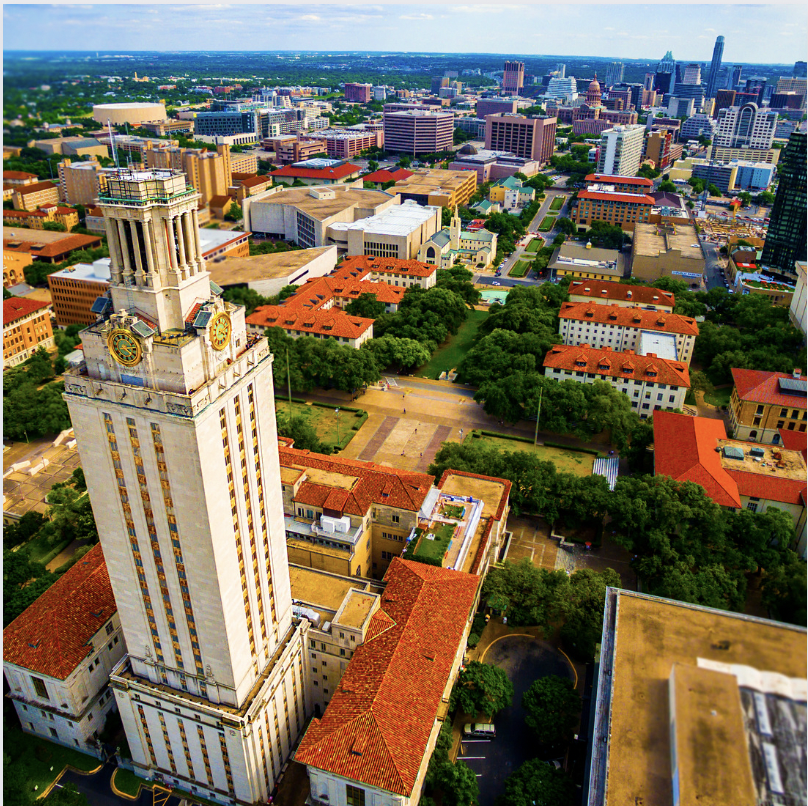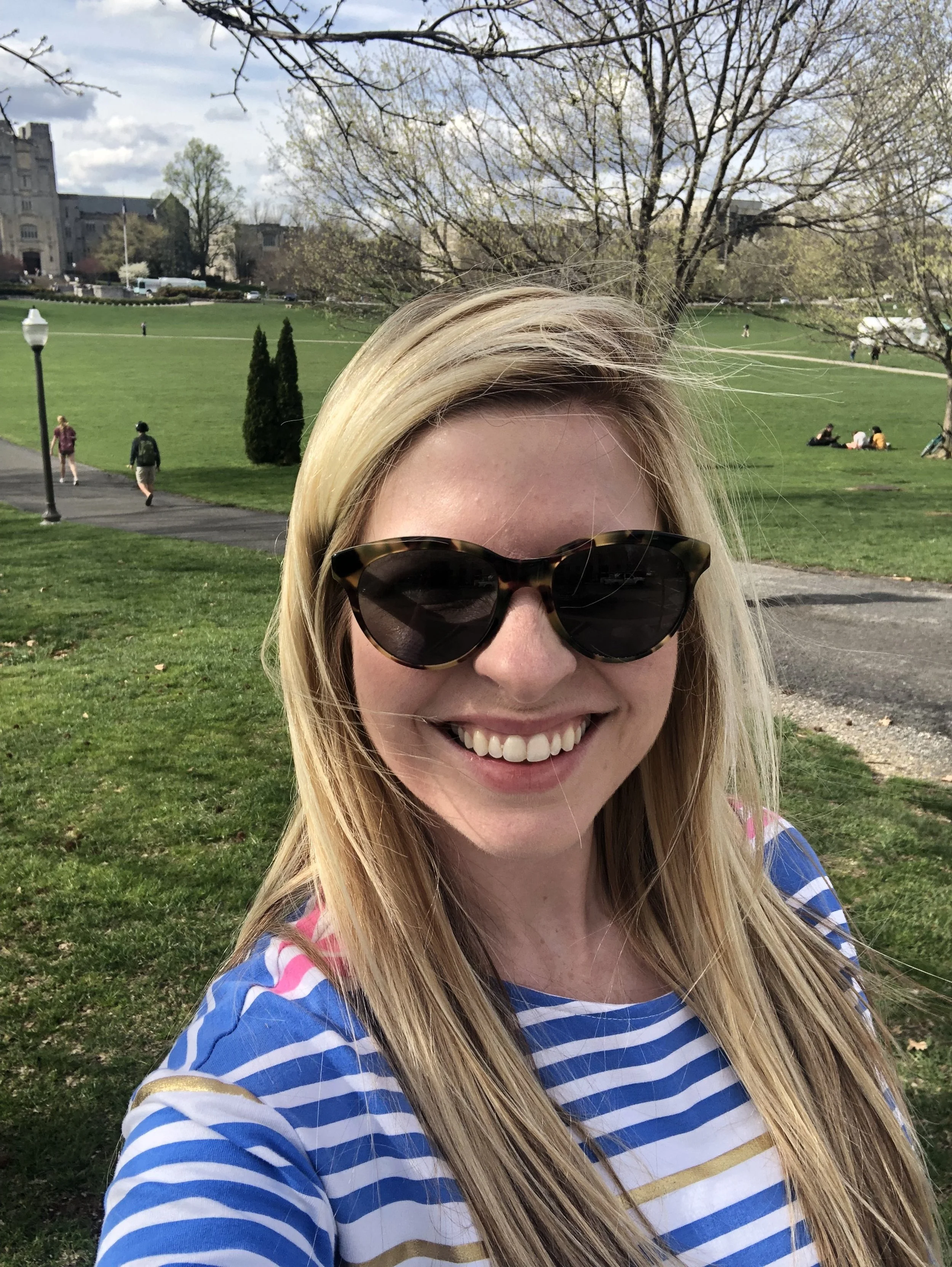BIGGEST COLLEGE-RELATED NEWS OF THE WEEK
VIRGINIA TECH RELEASES EARLY ACTION DECISIONS
The last of the major Virginia early action releases occurred with Virginia Tech on Friday evening. VT reported more than 47,000 applications for 7,085 seats in the freshman class, and so many qualified students were unfortunately waitlisted. We definitely encourage all students to read VT's Waitlist FAQ . Note that VT's released numbers represent totals, not just their EA pool.
Note If you are interested in learning more about other VA schools and their early action data, keep reading! There’s more on this topic and my thoughts later in this post.
STUDENTS PROTEST AT GEORGETOWN UNIVERSITY
There’s a call for big changes at Georgetown University. In response to incidents over the past several months, students formed the group Georgetown University Protects Racists (GURP) and have been protesting the ways in which the university handles hate crimes and bias incidents. Georgetown officials are now working with student leaders to address these issues, and an external review of the university’s systems is being conducted.
TRAGIC SHOOTING AT MICHIGAN STATE UNIVERSITY LEAVES THREE STUDENTS DEAD
Last week a gunman opened fire at Michigan State University, killing three students and injuring five others. The attacker- Anthony Dwayne McRae- fled the scene and was later found dead of a self-inflicted gunshot wound. He reportedly did not have any ties to MSU, and his motive is unknown at this time. As of Sunday night, university police reported that three of the injured students remain in critical condition. Meanwhile, the MSU community resumed classes on Monday. Faculty and administrators are working to support students through the rest of the semester with lighter course loads and credit/no credit options for academic classes.
WELLESLEY COLLEGE APOLOGIZES FOR MISHANDLING SEXUAL ABUSE CASE
Last week, Wellesley College president Paula Johnson issued an apology for the school’s mishandling of a sexual abuse case. The written statement was released the same day The Boston Globe published an expose on Wellesley’s former running coach, John Babington. Babington was accused of sexual abuse by a student in the late 1990s but continued working at Wellesley until 2013. In her letter, President Johnson thanked the alumna for sharing her story with The Boston Globe and reaffirmed the school’s commitment to preventing sexual harassment. She insisted, “There is no question that Wellesley would handle such conduct very differently today.”
CLEMSON UNIVERSITY ANNOUNCES EXCITING NEW MAJOR
There will be a new major to choose from at Clemson University in the fall of 2023! Clemson announced its plans to offer an undergraduate automotive engineering program next year- the first of its kind in the United States. The university is already regarded as a leader in this field of study, having launched a graduate program in automotive engineering in 2006. Now undergraduates will have the opportunity to prepare for dynamic careers in automotive manufacturing thanks to Clemson’s interdisciplinary and experiential curriculum, as well as its “unique geographic advantage.”
BEST ARTICLES OF THE WEEK
Does college need to be four years? That’s the question Professor Steven Mintz (University of Texas at Austin) recently tackled in his opinion piece for Inside Higher Ed. With the rising cost of college tuition, many students are dodging the traditional four-year model. Rather than paying for required electives and stressing out over overloaded semester course schedules, students are turning to online course alternatives and dual enrollment programs. The result is cheaper, more efficient credit earnings, but at what cost? Many wonder if these pathways diminish the value of a college education. The question is one that continues to incite big debates, and Mintz is happy to share where he stands. Ultimately, Mintz believes that students are bogged down in courses that don’t mean anything to them and are subject to far too many lectures and discussion-based classes. He hopes that in the future schools will turn to more meaningful, project-based learning opportunities for undergraduates, as well as increased options for “career-aligned degree pathways.”
Race, politics, religion–these topics may be controversial, even off-limits in some places, but not at the University of Austin (and no, that’s not a typo - University of Austin, not UT Austin!). The university’s Forbidden Courses summer program creates a space for civil engagement on topics that are often “forbidden” as topics of discussion. Students have the chance to “inquire openly into vexing questions with honesty and without fear of shame.” In other words, students are free! Whether they want to ask questions, offer a dissenting opinion, or challenge a belief, they can do that. If you’d like to hear students share their experiences in the forbidden courses or see the lineup of Summer 2023 offerings, click here.
Watching the Howard University swim team is a marvel for many, and it’s not because they’ve got the school dance team cheering them on at the sidelines. In a sport where only 2% of college athletes are Black, Howard University swim coach, Nic Askew, has made historic strides. Since taking over the program eight years ago, he’s revamped a once hopeless team. Over sixty school swim records have been broken, and last year, Howard earned a second-place finish at the Northeast Conference championship. Although Howard’s team is admittedly not a national powerhouse, they are “on the front line of change” in a sport that has historically denied access to the Black community.
OFFICE HAPPENINGS
As I mentioned earlier in the post, we’ve been spending a lot of time tracking early decision and early action data for this year’s admission cycle as well as doing our best to make meaning of what we see.
If you were surprised to find yourself on the VT waitlist, you’re in good company with a lot of others! Let’s take a step back in time to understand more about what’s been happening over in Blacksburg. During the 2016-2017 admissions cycle, VT accepted way too many students and over-enrolled their freshman class. As a result, they decided to be very conservative with acceptances in 2017-2018, but took it too far and ended up way below their enrollment goals. Ultimately they had to take about 2,000 students from the waitlist to fill the class. But then they went too far in the opposite direction again the following year! (Are you noticing a trend..?). Yes, in 2018-2019, they accepted far too many students again, and the situation attracted national attention because of the housing crisis in Blacksburg that resulted.
A few years ago at Virginia Tech!
Since that point, they have consistently under-enrolled - better than over-enrolling, I guess! During the following years, they took 3,961 (2019-2020), 3,286 (2020-2021) and 2,458 (2021-2022) students from the waitlist, respectively. These numbers represent HUGE percentages of the freshman class as a whole - taking 3,961 students off the waitlist for a freshman class of 7,000 is extremely significant.
This year, I’m wondering whether the possibility of a pending recession will impact the new pattern of under-enrollment leading to large waitlist acceptances. It could: historically, we see more students choosing public universities during periods of economic uncertainty. If more VT accepted students choose to enroll instead of pursuing private options, this could result in less spots for waitlisted students. There’s also the chance that VT accounted for this possibility when it came to building out this year’s model. Time will tell!
As for UVA, they released their EA decisions about a week before VT, and their numbers are up as well. As is typical for their office, UVA broke everything down to make the differences between EA and ED clear. It’s also really nice that they provide an in-state vs. out-of-state breakdown, but at the same time, keep in mind that data representing the entire state of Virginia may not represent the breakdown for Fairfax and Arlington counties. Anecdotally, I found UVA to be a little more predictable in their decision-making than they were over the last two years, which was a welcome surprise! VT was just completely unpredictable.
Last but not least, JMU's decisions came out about a month ago, and their increases were perhaps the most significant of all. Their 2022 EA numbers (for the HS Class of 2023 - it can get tricky because JMU releases in December while the other two release in the new year) were up 30% from the previous year and up 83% from two years ago. INSANE! Despite those enormous increases, I did find JMU to be pretty predictable for our applicants.
Bottom line? Even though we had pretty good luck with predictability this year, none of these schools are safeties anymore. Make sure to plan accordingly - if you want a Virginia public safety, you need to explore other options. We have so many great schools, so try to keep an open mind and check some of the others out.




